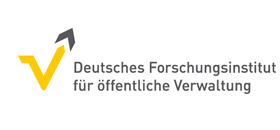Lehrstuhl für Politikwissenschaft (Univ.-Prof. Dr. Stephan Grohs)
Refine
Year of publication
Document Type
- Public lecture (53)
- Article (52)
- Part of a Book (40)
- Report (17)
- Book (8)
- Other (5)
- Review (5)
- Working Paper (4)
- Contribution to online periodical (2)
- Course Material (1)
Is part of the Bibliography
- no (188)
Keywords
Die kommunale Europaarbeit ist mit einer Vielzahl von Herausforderungen konfrontiert. In diesem Working Paper stellen wir Beispiele bester Praktiken vor, die unterschiedliche Aspek-te dieser Herausforderungen adressieren. Von der Fördermittelakquise über Netzwerkarbeit, Zielgruppenansprache und Städtepartnerschaftsarbeit bis hin zur internen Europaarbeit finden sich ganz unterschiedliche Beispiele, wie Europaarbeit lokal organisiert werden kann. Die Steckbriefe geben dabei eine schnelle Übersicht, mit welchem Ressourcenaufwand das jeweilige Projekt durchgeführt werden kann und beinhalten Hinweise zu Herausforderungen und Nutzen des Projekts. So können Ideen einfach und passgenau adaptiert werden.
One of the standard textbooks of German-language evaluation research has undergone a new edition. Since the first edition from 2007, 15 years have passed. In the meantime, a lot has happened with regard to the institutionalisation and professionalisation of evaluation research. With the new edition of the Handbook for Evaluation, students, practitioners and also experienced evaluators receive a significantly expanded and updated version of the classic. The volume documents the steps taken so far in the institutionalisation and professionalisation of evaluation and provides practical advice for conducting evaluations throughout their entire course. Despite some desiderata, the handbook is still the most comprehensive introduction to evaluation research for many practitioners and students in German language. It offers orientation and serves as a reference work even for experienced evaluators. Stockmann’s commitment to the professionalisation and institutionalisation of evaluation has thus created an institution of its own kind in the form of the Handbook, the reception of which will hopefully help to clear up the misunderstandings often found about the status and quality characteristics of evaluations.
Influence of "hard" law on national policies still is a central topic in Europeanisation research. One aspect often overlooked is the impact of "soft" law instruments such as the "Open Method of Coordination" (OMC). Through the OMC all member states agree on common goals and exchange "best practices" to improve policy coordination in a certain area without the obligation (how) to design policies. OMC impacts in individual member states have been studied extensively, yet a comparative perspective explaining their variance is lacking. This study by Niclas Beinborn tries to fill this gap by analysing the different impacts of a recent OMC: the European Youth Strategy 2010 (EUYS). His analysis is twofold: in a first step he applies theory-driven fuzzy-set QCA to a novel dataset depicting the variance of national activities around the EUYS. As causalities remain unclear, in a second step he presents an innovative analysis framework encompassing two dimensions - national motivation and relative openness to implement non-binding EU law - to define ideal types of OMC adaptation. Case studies on the EUYS in Germany and Ireland proof the potential of this framework to explain why and how OMCs work (differently).
Stephan Grohs, Professor für Politikwissenschaften an der Deutschen Universität für Ver-waltungswissenschaften Speyer, klärt zunächst den Begriff „Eigenständige Jugendpolitik“
und die Rolle der kommunalen Ebene für deren Umsetzung. Auf dem Hintergrund der in zwei Projekten gesammelten Erfahrungen, sieht er eine deutliche Diskrepanz zwischen „wohlmeinenden“ Programmen auf Bundes- und Landesebene und den Realisierungs-möglichkeiten der dort formulierten Ziele im Gestrüpp der „rechtlichen, finanziellen und politischen Rahmenbedingungen“ auf der örtlichen Ebene. Er verweist aber auch auf An-satzpunkte dafür, wie es gelingen könnte, die Interessen von Jugendlichen in der Kommu-nalpolitik stärker zur Geltung zu bringen. Dazu müssten sich allerdings sowohl die Akteu-rinnen und Akteure in den Kommunalverwaltungen bzw. der politischen Gremien bewegen, als auch die Vertreterinnen und Vertreter der Kinder- und Jugendhilfe.
Europeanisation situates local governments in a constantly changing environment, bringing challenges, opportunities, and constraints. These circumstances raise the question, how
local authorities adapt to the process of European integration, face its challenges, and use
its diverse opportunity structures. The article explores four dimensions, through which Europeanisation hits the ground of local government: downloading, uploading, dissemi-nation, and horizontal networking. It examines the distribution of different types of Europe-related activities at the local level using data from a survey sent to all 396 independent cities, towns, and municipalities in the German state of North Rhine-Westphalia. Our empirical analysis provides an overview of the most and least frequent Europe-related activities within the different types of local authorities. The findings of our multivariate analysis shows that next to the direct affectedness by Europeanisation, the municipalities’ capacities in terms of financial and institutional resources have a major influence on their efforts towards Europe.
This chapter focuses on the impact of specific “administrative styles,” understood as the everyday routines of the organization, on the reform patterns in international organizations. Consolidators are hence primarily driven by positional rather than policy interests. Entre-preneurs combine the latter two types; they develop administrative routines that entail intensive bureaucratic advocacy in policy-making and a strong orientation toward institu-tional consolidation to strengthen the administration’s position. In contrast, the picture should be completely different for consolidators. Given consolidators’ dominant motivation to secure their institutional status and legitimacy, organizational reforms will to a far greater degree reveal patterns of emulation of dominant reform paradigms and reform ideas in their organizational environment. Public sector organizations adopted these reports from the private sector as a form of communication with external and internal stakeholders. Most reforms have been identified within the area of organizational reforms, for example, institutional adjustments of the directorates.

